
Randy Rue
-
Posts
15 -
Joined
-
Last visited
Content Type
Profiles
Forums
Articles
Gallery
Downloads
Events
Posts posted by Randy Rue
-
-
Another good point. Will do. Might need to weld up another saw blade...
-
Too late on the hardy hole but I didn't remove that much material even with my reciprocating file. And good point on drawing out.
Can anybody with the AIA tell me a year or did they only do that for the bigger anvil? And what's a "RUHLEN?"
-
Oh I get the idea of wanting at least some radius, and having a few choices around the face. But that right corner near the horn is knocked WAY down...
-
Correction: I don't know that the body is cast iron. The horn has a pretty good ring even if it was pretty banged up. Maybe this was mostly used by a farrier? That would explain the heavy use on the horn? Is that big old edge radius something that would be useful for shoeing work?
-
I'm a small time hobbyist with little shop space so I've been making do with a cheap cast steel 30kg anvil I bought from Mr. Bezos.
At last weekend's Swaptoberfest of the NWBA I took home a small Lakeside serial number 188220. It also has "RUHLEN" stamped on the bottom of the foot, anybody know what that means? Or is it just the owner's name? You don't want some shop pilferer walking off with your anvil in their pocket and telling you it's theirs.
That "70" appears to mean 70 lbs. Confirmed with our bathroom scale, which also tells me the anvil has 0% body fat.
I don't have the AIA, can anyone guess the age?
Elsewhere I've seen references to Lakeside saying it was sold by Montgomery Ward, made by the same folks who made Trentons?
It's definitely cast iron, looks like they cast it in a kid's sandbox, but with a steel plate on the face. Took a wire brush to it, a worn out flap wheel to a few spots of welding spray on the face, and did a medium amount of smoothing on the horn. I'm thinking this thing doesn't have any historical value, I intend to use it.
A PO ground a crazy radius on one corner of the face, don't know if that was on purpose or they were cleaning up a giant chip.
I don't think the 3/4" hardy hole was ever used, it took a while with a home-made power file (triangle file welded to a reciprocating saw blade stub, I'm kind of proud of that 'hack') to get it large enough and square enough to put a tool in. Even then, it's not plumb (see pic with a bending fork inserted).
-
I have a hold down for my pritchel hole. I'm not excited about holding hot stock with my crotch, if only because my gas forge isn't very good for localized heat and I like my cajones non scorched. Maybe I'll look into options quicker than the hold down.
Also, I wear a non-split apron.
-
N00b question. I see all these videos of the anvil where the smith has a hammer in one hand, a punch in the other, and somewhere off the camera they must have the end of the piece wedged in their crotch or something. How are they holding that end?
-
apologies for poor punctuation and typing, I'm too lazy to sit at my desk so I'm thumb typing from my phone
my homebuilt gas forge doesn't reach welding temps and can't do a localized heat so I built what I thought was a pretty good brake rotor forge. I also got excited about corn as a fuel as coal is hard to find in the Seattle/Everett area
after two sessions now of forging with it I'm realizing a) why folks stress that a brake forge is mostly good as a cheap entry point and b) why I've only found a little mention of corn along the lines of "sure, it works I guess" but nobody claiming to use it full time
I did find anthracite at Tractor Supply and had a much easier time with it. for example, corn has a big old flame above it. corn doesn't get hot enough with the blower damped but blows loose if I crank up the air
but when planning for corn I built the forge with a simple disc with drilled holes for the tuyere. with coal I can work for about 45 minutes before the clinkers kill the fire
also, with both fuels it's hard to get the right spots on my stock hot, as the fire pot (brake rotor) has a flat bottom with air coming up the center
so I'm thinking of "coning in" the pot with refractory cement, and adding a clinker breaker
I welcome feedback and have a specific question: I'm using 2" square tube below the pot (had it on hand). should I use a cubical block on a shaft for the breaker? if so, how big?
ok another question. I have some Rutland 211 dry mix refractory mortar on hand. was gonna try that mixed 50/50 with sand to fill in the pot. worst case is it fails and I break it out?
-
first, didn't think about pasting a vendor's link, makes perfect sense that would be bad form
second, the bottom jaw idea is a really good one, I'll keep an eye out for a scrap pipe wrench
-
was just logging back in to add that question. I'm just a hobbyist, am I cheating by wanting a die?
it's also a fact that I've found I like making tools as much as I like making things with tools
maybe I'll stick to hand marking and if I reach a point where I need a die I'll look at making one. Black Bear Forge has a good video on that
-
these folks sell a few different leaf dies, anybody know the difference between them?
[commercial link removed]
they don't seem to have a contact email but I might just call them.
or does anyone have knowledge of leaf dies in general? do you use them? can you recommend a source?
-
I only just recently discovered this is a thing but I'm probably going to try using corn.
after looking at the two blower motors available from on line, the one I have on hand has more horsepower than their cheap one and a lot less than their expensive one. I think I'm just going to have to build this thing tape the motor on and give it a shot
-
sorry should have been clearer, I'm looking to use a draft inducer blower for the forge blower.
and having done some troubleshooting of my house gas furnace in the past, it occurs to me that blower is only meant to boost the flow of gasses in the chimney so regardless of it's physical size it might not be strong enough to feed the fire.
found the specs for the blower I have:
- Amps: 1.3
- HP: 1/25
- RPM: 3200
Specs don't include anything for CFM or static pressure but I did plug it in and it blows a nice breeze out of a 3.5" square flange. based on a highly scientific estimate of fast it makes me blink if I point it at my face compared to my wife's hair dryer, if I make a real reducer to 2" pipe and don't just weld a tube to a square plate, it would be comparable
-
hi all
my propane tank / frosty tee forge is not very good for focused heat and not hot enough for welding so I'm gearing up to make a brake rotor forge. been reading about coal and just now about corn. in western WA state coal is not easy to get
but first, the blower. I have a furnace draft inducer motor on hand, bigger than any hair dryer but not as overkill as a vacuum cleaner, leaf blower or bouncy house blower. seems like an obvious choice but I can't find anyone online talking about using them. am I missing something?
seems like I'll want some way to throttle it. a gate on the intake or output? a dump/spill gate? or a speed control on the motor?
let me know
randy in edmonds
-
I was heading this same direction, C-channel slides for brick at the front and back of the forge, but have ordered hard brick as it seems awkward to have 2-1/2" bricks at the ends and the hard bricks are half that thickness.
Will hard brick be too much of a heat sink? Even with IR coating?
Alternatively, I see soft brink available 3/4" thick but will that be too fragile?
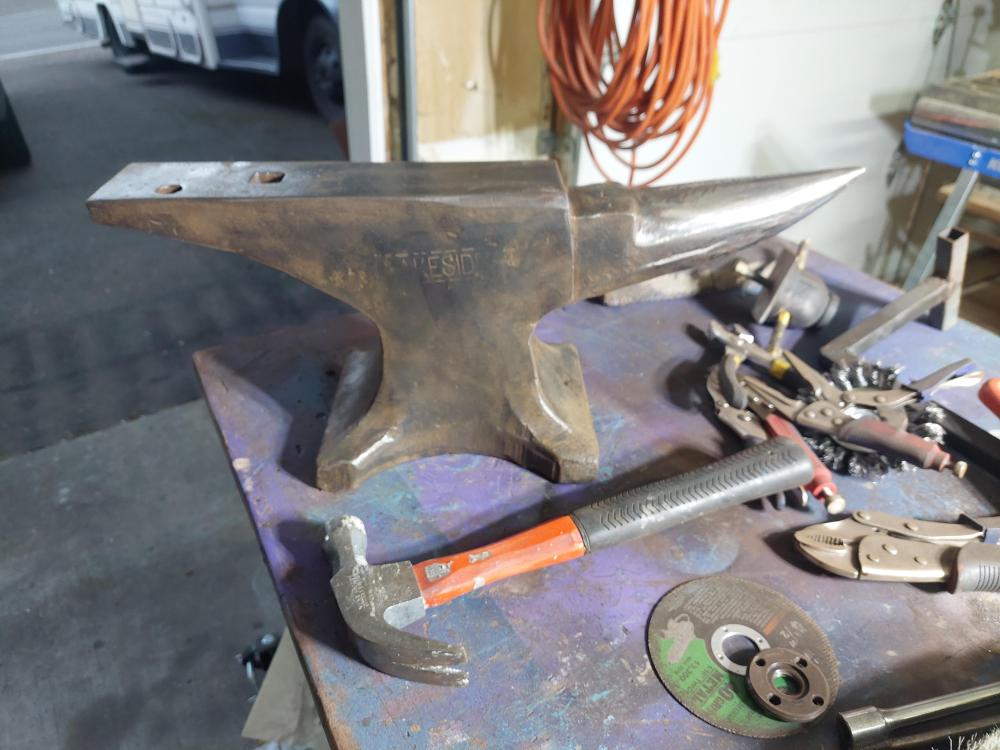
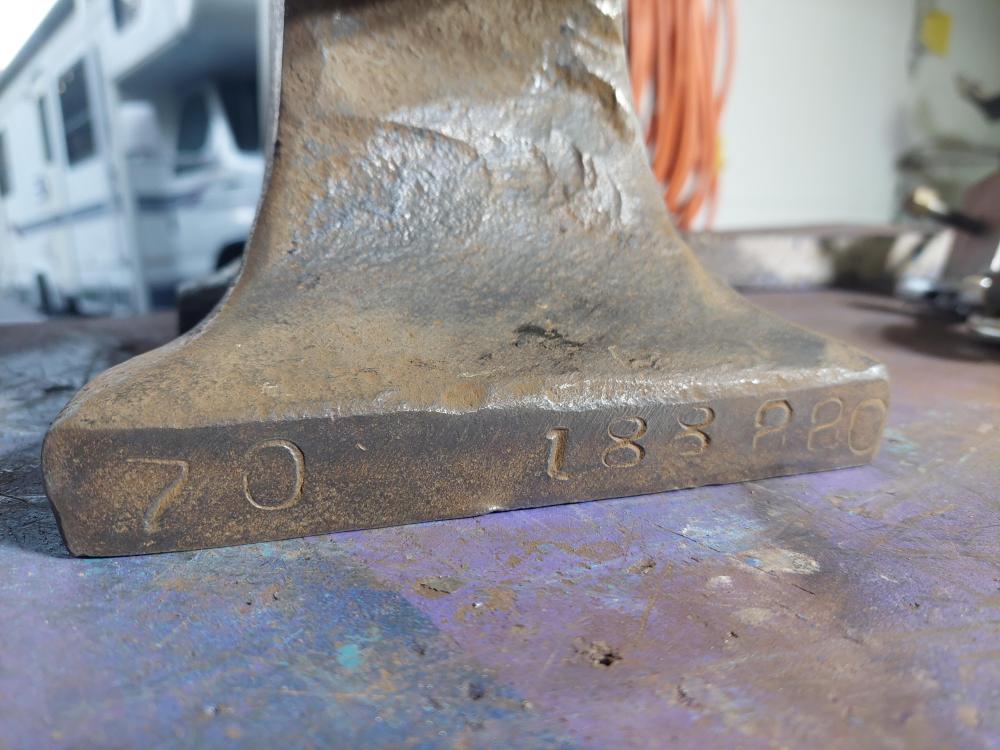
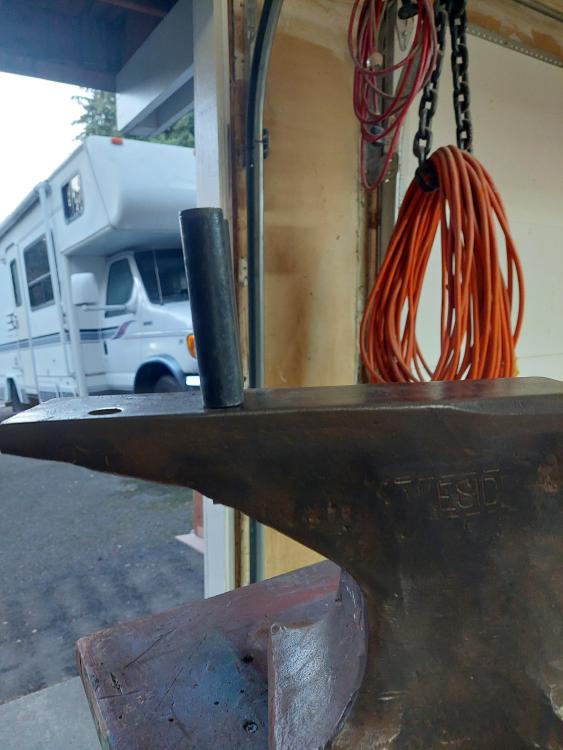
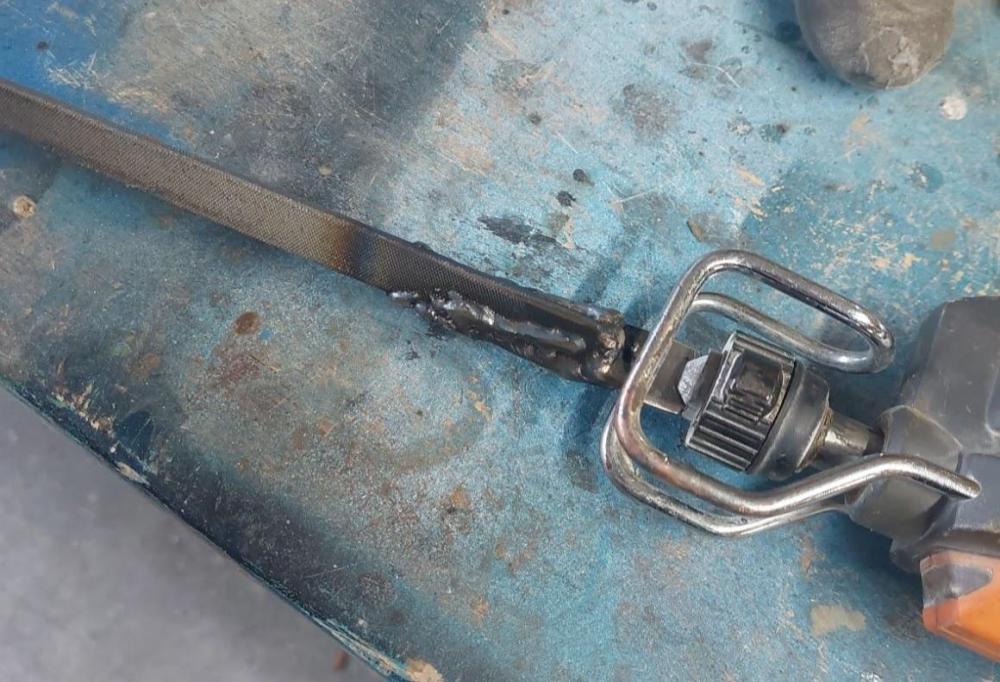
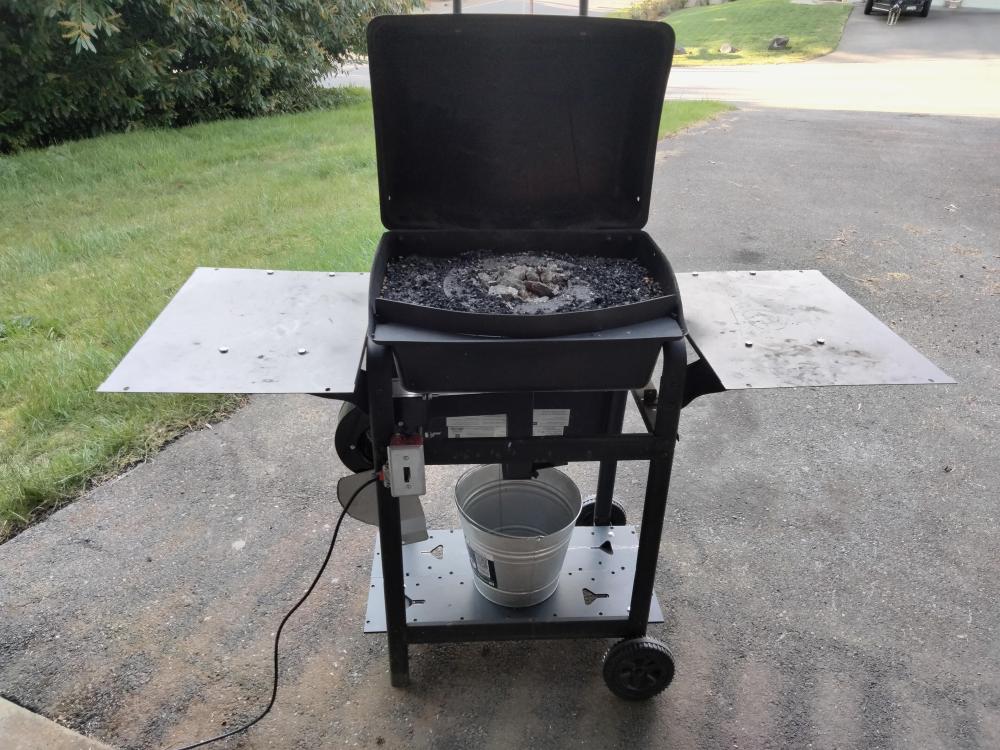
Casting a Gingery Lathe
in Smelting, Melting, Foundry, and Casting
Posted
You can buy bentonite online. I tried screening home depot sand using a screen sieve and a massager and after about two hours went and found aquarium filter sand ready to use.
I also eventually bought petrobond online. I use it when I want the finer resolution.
Look on yootoob for a channel called "Paul's Garage" if you haven't been there already. Over the years he's progressed from melting cans with charcoal to pretty sophisticated stuff and is slowly progressing on a Gingery lathe.
Stay away from "pure" aluminum like you get from extrusions and cans and whatnot. What you want is the blue-ish stuff you get from heat sinks and motor mounts, engine blocks, alloy car wheels. It has silicon in it. Lots stronger and less trouble with dissolved gases. Or even better, try one of the zinc alloys that melt at much lower temps. Paul's Garage has a good video on that.